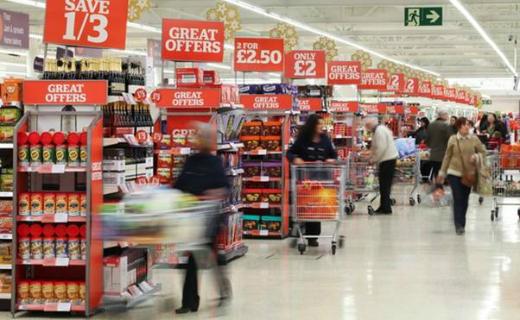Tesco has committed to net-zero emissions across its supply chain and products by 2050.
Emissions from Tesco’s products and supply chain make up more than 90 per cent of the retailer’s total emissions footprint.
The announcement comes as the retailer pledges a new group-wide net-zero target of 2035 for its own operations.
Tesco’s 2050 commitment will cover all emissions generated across its entire supply chain, including the sourcing of raw materials and food production, where emissions are generated through agriculture and manufacturing; in the use of Tesco products, including food waste; and in people’s dietary choices, where an increase in the amount of plant-based food is required to cut emissions.
The supermarket chain said that 100 of its largest suppliers have already reduced manufacturing emissions by 20 per cent.
Over the next year, the company promised to set out a clear plan for achieving its new targets, key emissions areas, such as agriculture, as well as an annual update on progress.
“In this critical year for tackling climate change, it’s right that we set out this ambitious commitment to cut emissions across our entire value chain,” said Ken Murphy, chief executive, Tesco Group. “We don’t yet have all the answers and we’ll need support from our suppliers and wider society to meet our targets, but it’s vital we take action now.
“Building on the good progress we’ve made in cutting emissions in our own operations, we’re also setting out a Group-wide net zero target of 2035. These new commitments will bring an unprecedented level of transparency to our emissions footprint and will allow us to identify and tackle those areas where urgent transformational change is needed.”
Latest News
-
Carrefour opens AI-powered microstore in Belgium
-
Chief information officer at Subway departs
-
Three-quarters of UK shoppers 'put security first' for online payments, finds AmEx research
-
Deichmann rolls out new order fulfilment platform
-
Southern Co-op partners with Deliveroo across 139 stores
-
River Island makes further headway on omnichannel transformation with Shopify migration
Beyond Channels: Redefining retail with Unified Commerce
This Retail Systems fireside chat with Nikki Baird, Vice President, Strategy & Product at Aptos will explore how unified commerce strategies enable retailers to tear down these barriers and unlock new levels of operational agility and customer satisfaction.
The future of self-checkout: Building a system that works for consumers and retailers
In this webinar, industry leaders discussed what the future of self-checkout looks like and how retailers can make the technology work for everyone.
© 2024 Perspective Publishing Privacy & Cookies










Recent Stories